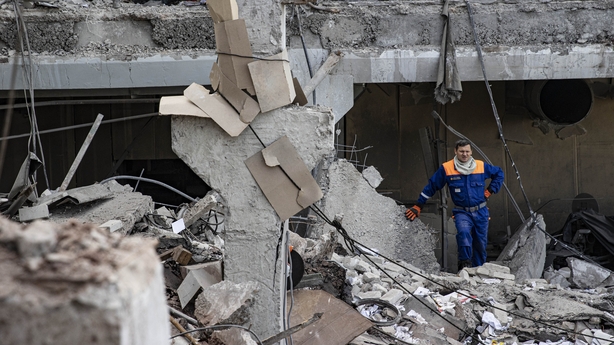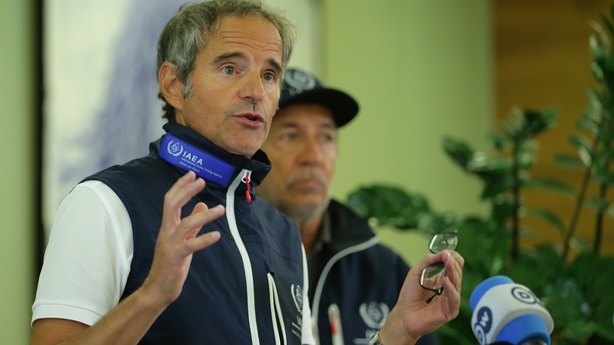The global atomic energy watchdog said today that Ukraine's Zaporizhzhia nuclear power plant had been disconnected from its last remaining main power line to the grid and is now relying on a reserve line.
The plant's three other operational power lines were lost earlier during the conflict.
"Ukraine's Zaporizhzhia Nuclear Power Plant (ZNPP) has once again lost the connection to its last remaining main external power line," the International Atomic Energy Agency said in a statement.
"But the facility is continuing to supply electricity to the grid through a reserve line, the IAEA was informed at the site today," it added.
Meanwhile Russia's defence ministry claimed that Ukrainian forces attempted to capture the Zaporizhzhia nuclear power plant in an attack on the facility last night.
Russia said its forces foiled the attack with strikes from military helicopters and fighter jets, destroying 20 Ukrainian vessels and causing others to scatter and call off the attack.
Reuters was unable to verify the report.
It comes as Turkish President Recep Tayyip Erdogan told Russian counterpart Vladimir Putin today that Turkey can mediate in a standoff over the Zaporizhzhia nuclear power station.
"President Erdogan stated that Turkey can play a facilitator role in the Zaporizhzhia nuclear power plant, as they did in the grain deal," the Turkish presidency said.
Ukraine, one of the world's largest grain exporters, was forced to halt almost all deliveries after Russia's invasion in February, raising fears of a global food crisis.
Exports of grain across Black Sea ports resumed under the deal signed in July by Kyiv and Moscow with the United Nations and Turkey as guarantors.
Last month, Mr Erdogan warned of the danger of a nuclear disaster when he visited Lviv for talks with his Ukrainian counterpart Volodymyr Zelensky.
"We are worried. We do not want another Chernobyl," the Turkish leader had said.

The Kremlin said the two leaders confirmed "the intention to expand trade and economic ties, including the promotion of joint strategic projects in the energy sector".
It comes as Russia's Gazprom said repairs needed to be done on the Nord Stream 1 pipeline.
The Turkish leader also passed on his condolences for the death of the last leader of the Soviet Union, Mikhail Gorbachev, in the first such reaction from Ankara.
Alarm has grown in recent weeks over shelling hitting the area of Europe's largest nuclear plant, Zaporizhzhia.
Ukraine yesterday said it bombed a Russian base in the nearby town of Energodar, destroying three artillery systems as well as an ammunition depot.
Russia's envoy to Vienna, Mikhail Ulyanov, said six IAEA inspectors would stay behind for several days and that two more would remain there "on a permanent basis".
The United Nations inspection team, led by IAEA Director General Rafael Grossi, braved intense shelling to reach the Zaporizhzhia plant on Thursday.
Mr Grossi, after returning to Ukrainian-held territory, said the physical integrity of the plant had been violated several times.
Yesterday, he said he expects to produce a report early next week, and two experts from the International Atomic Energy Agency (IAEA) inspections team would stay on at the plant for the longer term.

The site sits on the south bank of a huge reservoir on the Dnipro River, 10km across the water from Ukrainian positions.
Each side has accused the other of shelling near the facility, which is still operated by Ukrainian staff and supplies more than a fifth of Ukraine's electricity in peacetime.
Kyiv also accuses Russia of using it to shield its weapons, which Moscow denies. Russia has so far resisted international calls to pull troops out of the plant and demilitarise the area.
Russian Defence Minister Sergei Shoigu said Ukraine was continuing to use weapons from its Western allies to shell the plant.
He rejected assertions by Kyiv and the West that Russia had deployed heavy weapons at the plant.
Elsewhere, Ukraine's general staff said Russian forces had shelled dozens of cities and towns including Kharkiv - Ukraine's second-largest city - in the north and in the Donetsk region in the east.

